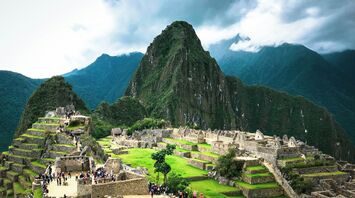Machu Picchu Reopens: A Triumph for Tourism in Peru

After a tense five-day protest that saw rail services to Machu Picchu suspended, the iconic Incan citadel is once again accessible to tourists. The strike, sparked by discontent over the government's decision to contract a private company for ticket distribution, has come to an end, heralding "very good news for Peru, for the people of Cusco, and for Machu Picchu Pueblo," according to Peru's Minister of Culture Leslie Urteaga.
The protests rendered the journey to Machu Picchu a daunting nine-hour endeavor, virtually cutting off access to Peru’s crown jewel of tourism. However, a resolution was reached Tuesday night when the Minister of Culture, Cusco’s regional governor, and the mayors of three towns signed an agreement. A pivotal aspect of the agreement was the termination of the contract with Joinnus for the sale of tickets to the World Heritage site, addressing the primary concern of the protesters.
Resumption of Rail Services to Machu Picchu
The FTSA consortium, responsible for managing the train tracks, has informed tour operators that train services can resume, a move that has been eagerly awaited by both travelers and the local tourism industry. Sarah Miginiac, General Manager for Latin America at G Adventures, relayed the update, signifying a return to normalcy for tours to Machu Picchu. Inca Rail and PeruRail, major train operators in the region, have confirmed the resumption of services, offering relief to travelers and tour operators affected by the service suspension.
Implications for Peruvian Tourism
Machu Picchu stands as Peru’s premier tourist attraction, drawing visitors from around the globe with its stunning archaeological marvels and breathtaking landscapes. The recent disruptions highlighted the site's critical importance to the country’s tourism sector and the broader economy. The swift resolution of the protests and the restoration of rail services not only facilitate access to Machu Picchu but also signal Peru's resilience in maintaining its tourism infrastructure amidst challenges.
The resolution of the strike and the reopening of Machu Picchu underscore a collective commitment to preserving access to this invaluable cultural heritage site. As train services resume and tourists return, the episode serves as a reminder of the delicate balance between managing tourism, local concerns, and the preservation of historical sites.



















